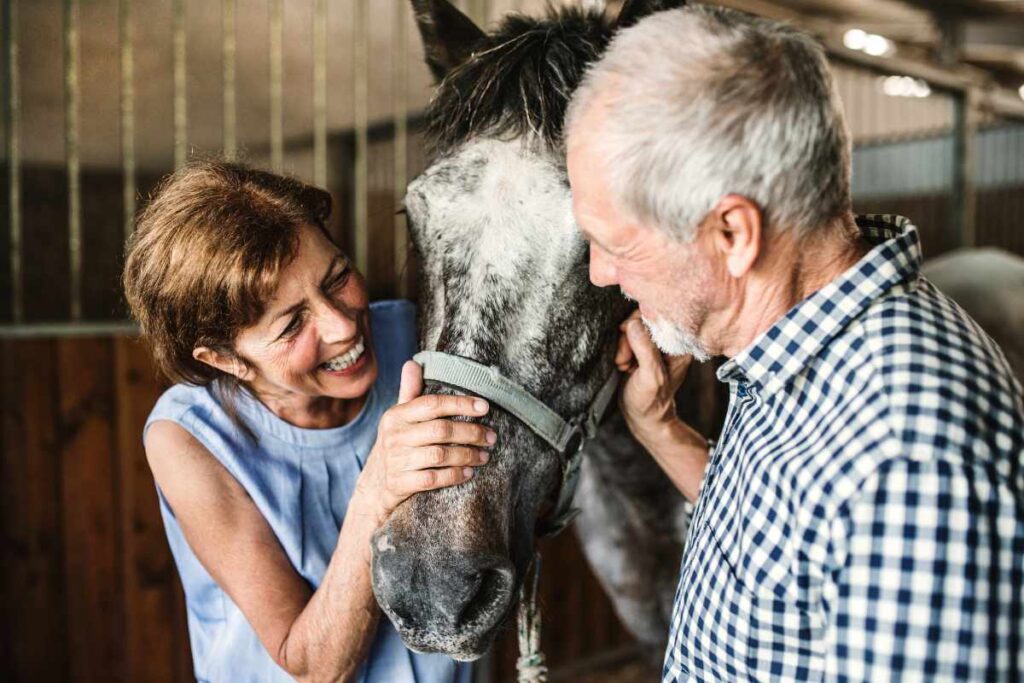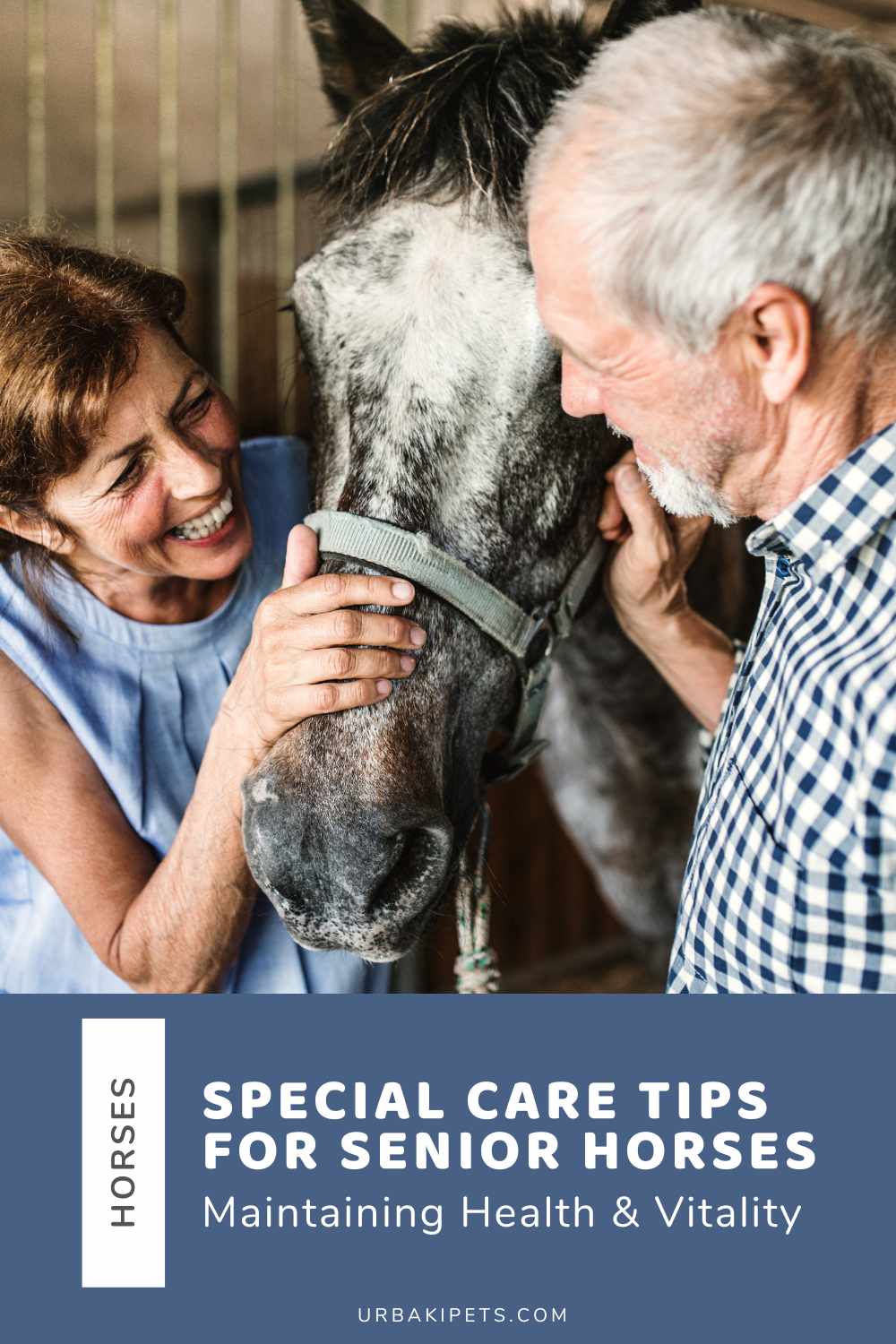Special Care Tips for Senior Horses - Maintaining Health and Vitality

As horses age, their needs begin to change—sometimes gradually, sometimes noticeably. Providing thoughtful care to a senior horse can help extend its quality of life and preserve its energy and well-being.
With proper attention, older horses can continue to enjoy daily routines, companionship, and gentle activity well into their golden years.
Understanding the Aging Process in Horses
A horse is typically considered “senior” around the age of 15 to 20, although this can vary by breed and lifestyle. At this stage, changes in metabolism, joint flexibility, dental health, and digestion often become more apparent.
Some older horses remain active and vibrant for many years, but others may slow down and need extra support. Recognizing the early signs of aging is key to making adjustments that benefit your horse’s comfort and overall condition.

Adapting Their Diet and Nutrition
One of the most important aspects of senior horse care is nutrition. Older horses may struggle to maintain weight or properly absorb nutrients due to worn teeth or a slowing digestive system.
A high-fiber, easily digestible diet can make a big difference. Adding soaked hay pellets, senior-specific feed, or even beet pulp can help ensure they’re getting what they need without putting stress on their system.
Dental health plays a big role here. Regular dental checkups are essential, as missing or uneven teeth can cause discomfort and reduce feed efficiency. A horse that can no longer chew hay properly may require alternative sources of fiber.
Maintaining Mobility and Joint Health
As horses age, joint stiffness and arthritis often become more common. Regular but gentle movement is beneficial. Daily turnout, light riding, or hand-walking can support flexibility and prevent stiffness.
In colder months, providing a dry, wind-sheltered area and protective blankets may also reduce joint discomfort.
Supplements with ingredients like glucosamine, chondroitin, and MSM are commonly used to support aging joints. While they aren’t a cure, they may offer some relief.
Talk to your vet about options tailored to your horse’s condition and activity level.

Keeping the Immune System Strong
The immune system naturally weakens with age, making older horses more susceptible to infections, parasites, and illness.
Routine vaccinations and deworming schedules should continue as recommended, but always consult your veterinarian to adjust dosages or frequency if needed.
Some older horses may benefit from additional bloodwork to monitor organ function or catch early signs of disease.
Managing stress levels also supports immunity. Sudden changes in routine or environment can take a toll, so try to maintain consistency and introduce new situations gradually.
Adjusting Grooming and Skin Care
Skin and coat changes are also common in senior horses. Their coat may become duller or take longer to shed in the spring. Regular grooming helps stimulate circulation and allows you to monitor for issues like rain rot, dermatitis, or pressure sores.
If your horse lies down more than usual or has trouble standing, check for signs of rub marks or abrasions, especially in stall-kept horses.
For older horses that are less mobile, using a soft brush and focusing on comfort rather than appearance can help maintain trust and relaxation during grooming sessions.
Insect protection also becomes more important, especially if the horse spends time outdoors.

Creating a Comfortable Living Environment
Older horses benefit greatly from a calm, familiar, and low-stress environment. This might mean more frequent bedding changes for softness, low entry points to shelters or stalls, and reduced competition for food and water in shared spaces.
Horses that are lower in the social hierarchy may become more vulnerable as they age, especially in herd settings. Providing a safe area where they can rest and eat without being disturbed is vital.
Good footing is another consideration. Icy, muddy, or overly compacted ground increases the risk of slips and injuries. Maintaining solid but forgiving surfaces where your horse moves most can support their mobility and prevent accidents.
Mental Stimulation and Emotional Support
Just like humans, older horses need engagement. They thrive when their days include interaction, light exercise, or even basic groundwork sessions. While they may not be up for rigorous training, they still enjoy tasks that involve focus and gentle movement.
Regular companionship—whether from other horses, caretakers, or even familiar routines—can provide emotional stability.
Some senior horses may develop signs of anxiety or withdrawal if their needs aren’t being met. Look out for behavior changes such as reluctance to eat, pacing, or sudden skittishness.
These may indicate discomfort, loneliness, or cognitive decline. Patience and consistent attention can go a long way in keeping your horse feeling secure.

Monitoring for Common Health Conditions
Senior horses are more likely to develop chronic conditions like Cushing’s disease (PPID), insulin resistance, or laminitis. Watch for symptoms such as long, curly coats that don’t shed properly, increased drinking and urination, or frequent hoof soreness.
If you notice these or other concerning changes, early veterinary evaluation is crucial.
Regular wellness exams, at least once a year, can catch subtle changes before they become more serious. Blood tests, dental evaluations, and weight monitoring should be part of this senior care routine.
Celebrating the Senior Years
Caring for an older horse requires extra attention, but it also brings a unique sense of reward. Senior horses often develop a deeper connection with their caretakers and a calm, wise presence that younger animals don’t yet have.
Providing thoughtful care not only helps maintain their health, but it also allows you to enjoy their companionship for years to come.
Being proactive, observant, and flexible with your horse’s changing needs helps build trust and comfort as they enter this special chapter of life.
Whether your horse is a retired riding partner or a lifelong companion, the bond you nurture through senior care can be one of the most meaningful parts of your journey together.
Did you find this post useful or inspiring? Save THIS PIN to your PETS Board on Pinterest!


You may also like